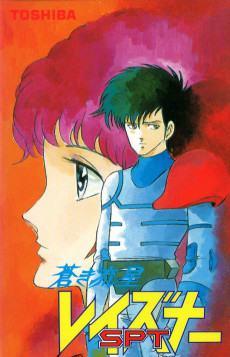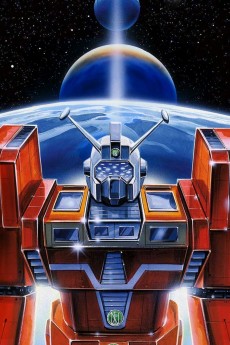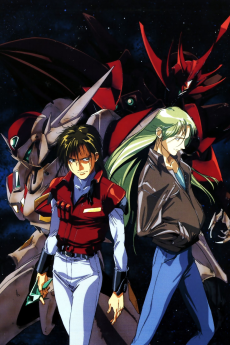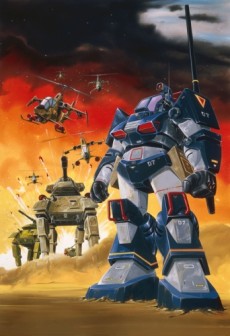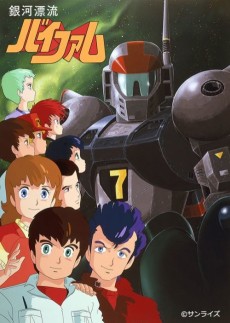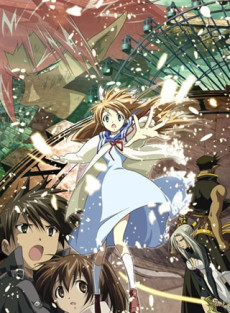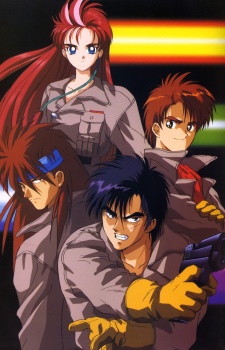AOKI RYUUSEI SPT LAYZNER
STATUS
COMPLETE
EPISODES
38
RELEASE
July 26, 1986
LENGTH
24 min
DESCRIPTION
The SPT Lazner is a super-powered, computerized Tracer robot. It is the strongest robot in the universe. The story's hero, Eiji, is the child of an earthman and an alien from another planet. He happens to find out about a conspiracy to destroy the earth. Using Lazner and with his friends’ help, Eiji decides to save his father's planet earth and fight against his mother's planet to achieve peace in space.
The Story takes place in an alternate reality based in the year 1996, where humanity is advanced enough to develop long-range space travel.
(SOURCE: AnimeNewsNetwork)
CAST
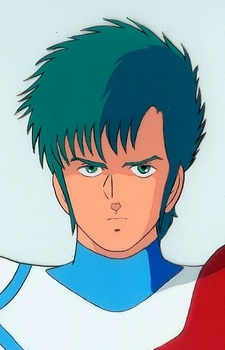
Eiji Asuka
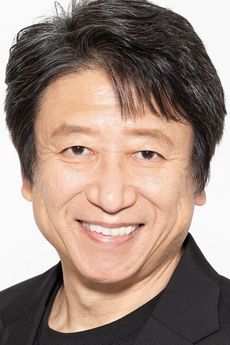
Kazuhiko Inoue

Anna Stephanie
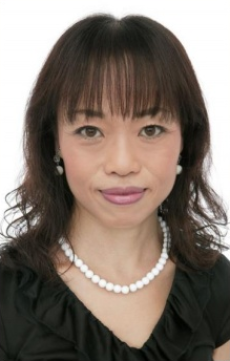
Hiroko Emori

David Rutherford
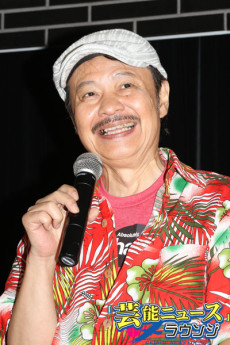
Hideyuki Umezu

Roanne Demitrich
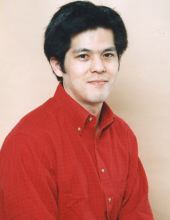
Katsumi Toriumi

Simone Reflann
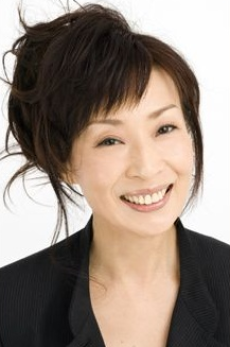
Fumi Hirano

Arthur Cummings Jr.

Yuuji Shikamata
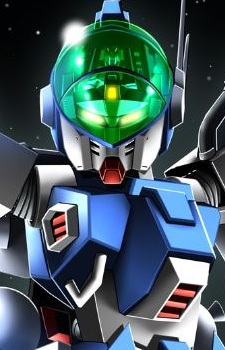
Rei
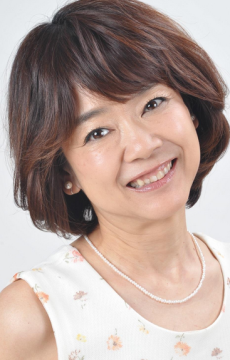
Eriko Hara
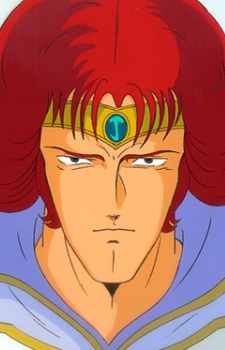
Le Cain
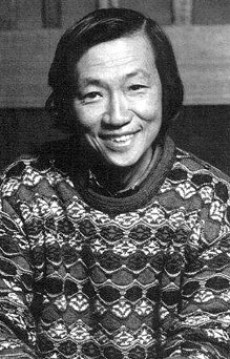
Kaneto Shiozawa
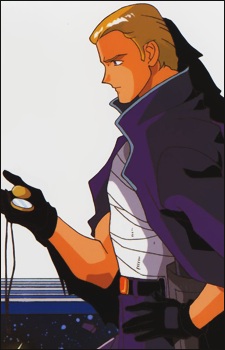
Ahmos Gale
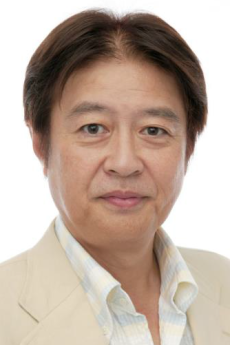
Hideyuki Hori
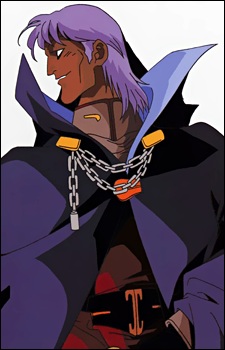
Gosterro
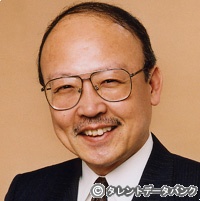
Masashi Hirose

Elizabeth Clabery
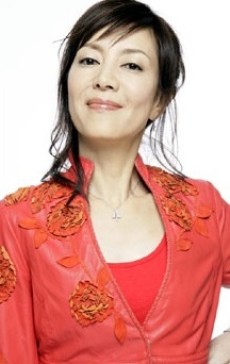
Keiko Toda
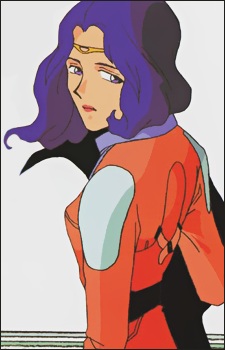
Julia Asuka

Mari Yokoo

Fouron

Eriko Hara
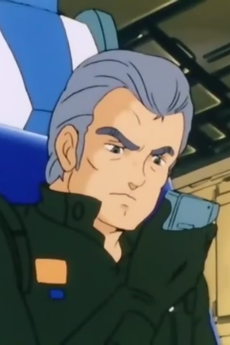
Danny Carks
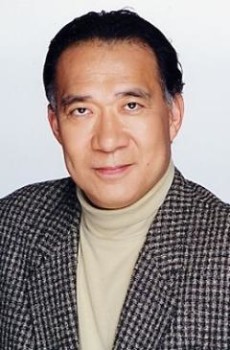
Daisuke Gouri
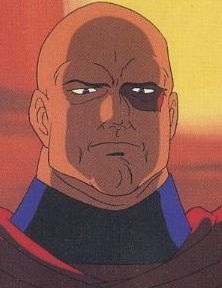
Gresco
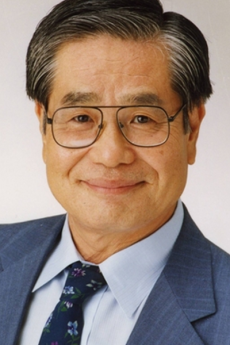
Takeshi Watabe
EPISODES
Dubbed
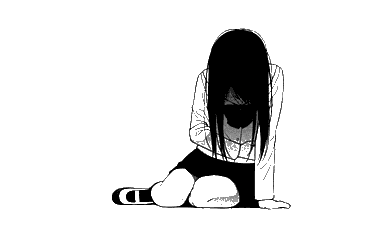
Not available on crunchyroll
RELATED TO AOKI RYUUSEI SPT LAYZNER
REVIEWS

AtelierWeiss
75/100Fighting against inevitability. Survival of the fittest in a dim Cold War influenced world.Continue on AniListAoi Ryuusei SPT Layzner is Ryousuke Takahashi's fifth creative work and one that stands out among his other mecha works for feeling a lot more representative of the genre. While Dougram is a much more politically focused show with action that feels more comprised of guerrilla efforts than giant robots punching each other, Layzner is something that feels a lot more distinctively like a real robot show making it more derivative compared to his other contributions to the industry up to this point yet refreshing in its execution.
Layzner tackles some very interesting concepts within the mecha genre. Taking place in an alternative history where the Cold War continued for decades trust between nations is still very weak among the two main superpowers of the aforementioned war which maintained their political and militant prevalence. It's an era where all it takes is one askew action to set off a war and when an unknown alien force helms the charge of a battle on Mars, it was all it took to lead to a mass missile attack on both sides' military bases on the red planet. What's great about this premise is how volatile it can be. Trust between nations is tense after all so when word of a mass attack on a nation occurs each side assumes the other is the cause. In reality it's an entirely alien force known as Grados, humanoid beings very similar to earthlings who using this knowledge of tension declares this attack to make each side attack each other.

The keyword is tension, as the first 24 episodes is very invested in this theme. Trust issues between different parties, the fear of being attacked by a superior alien force, the tension of trying to run from them. From the first episode there's a very clear air of bleakness, a sense of helplessness in an effort to survive a battle that can't be won. And in its execution it's damn good. The main cast comprises mostly of students from a club that were brought to Mars as a peace effort between nations and being thrown into the deep end with civilians that don't have any battle experience puts you in a similar position to them. You're witnessing and feeling the sense of dread they are as giant robots piloted by aliens attempting to destroy the location that separates them from a planet with no atmosphere. It makes the characters feel boxed in, and by extension yourself, following them trying to find any possible survivors and a chance to make their way back home.
That is with the exception of a wild card with the main character, Eiji Asuka. Eiji is the solace in this hopeless situation yet an explosive one that seems to help the civilian crew but given their situation have a hard time trying to trust him. It's a reasonable response as there's no reason for our heroes to figure that there's a coup occurring within an alien army that no earthling is even aware of. Eiji is the bridge that becomes the hope as well as the evidence that the alien adversaries aren't all evil. And it's an endearing experience watching him try to gain the trust of everyone.



The cast of Layzner is really great, it's not going to be winning awards for being groundbreaking but everyone is personable and have varied, believable reactions to what's happening and in general have very likeable personalities. Every character slowly falls into serving a role in the story and it all feels natural. They all receive development that makes you really root for them and become concerned of their wellbeing -- or in some other cases, make you hate them. The further the story goes the more it feels like everything will work out for them. Even when the story does take a significant shift the characters remain who they are and continue to develop remaining true to themselves and not being adjusted to fit the new tone.
I will touch upon the second part of this show briefly because I don't wish to spoil much. Layzner is somewhat infamous in circles that are aware of it for having a pretty drastic shift in tone after episode 24. It loses a lot of the drama and nail-biting suspense as it moves in direction that is a lot more action packed and bombastic. Really, it almost feels like a completely different show. But I want to clarify that this change isn't weak, it's just very different to what came before. As far as individual episodes go I'd almost say it's as good as the first part of the story. The problem more lies in that it's a cancelled show. Layzner is one of the most unfortunate examples of a cancelled show as something that was clearly being created with the intention to be 50 episodes and around 35 episodes in got asked by the Sunrise executives to give it an ending. Narratively, it's not a graceful finish. However when it comes to what it offers within its episodes all the way up to the end Layzner does hold itself intact fairly well, albeit with a few hiccups with how it handles some of its secondary and main characters. Bear in mind as I say this that I did not watch the original TV ending and only viewed the ending that came in the OVA a few months after the show's airing.
With that out of the way, I want to talk more about the positives which include the visuals. Layzner is a gorgeous looking show for its time. As far as TV animation goes for the era, Zeta Gundam's one of the only shows I can think of that looks as detailed and well animated as Layzner, and even then I'd say Zeta's inferior. And it's not just animation, the art is very detailed with mecha designs that are more complex than most in the era and mature character designs that are reminiscent of a softer, less gruff Fist of the North Star. Its storyboard and layout is very nice too, with shot composition that at times can evoke a lot of emotion. There were some visual moments in the show that really stood out to me that I had to pause it or go back and re-experience it.

I also really enjoy the opening theme and animation. Among the fans that's not a unique opinion but it really is great sequence that's well choreographed. I love the change between the first and second openings when Eiji's running as it changes from a determined expression with less urgency in his face to a more aggressive expression that makes him seem at wit's end, running at full speed doing everything his body can handle to complete his mission. It represents well the shift in urgency from the first part to the second.
Regarding the soundtrack it's also quite strong. The aforementioned opening theme is good of course but the soundtrack itself is varied offering a range from classical influences to pop to Aoki Nozomi-like orchestral jazz & rock. It's not a large soundtrack but unlike Dougram which fails in having strong themes Layzner actually benefits from this being able to make some tracks represent certain characters. When you hear certain themes you're a lot more likely to get excited or to react in a particular way compared to Dougram which with its tiny soundtrack and double the runtime ends up making its great tracks carry less weight to them.
All in all, I feel like I could talk more about this show in greater detail but as a written review I'd much rather hit the bullet points and give you a taste of what this show offers. It's something that should be seen for yourself especially if you're a mecha fan. It does have its problems and has a very rushed ending but the content that comes before it and even the ending itself in isolation is highly entertaining. This was a show that came so close to being absolutely amazing, if it was given the chance to be complete it might've become one of my favourite mecha shows of all time. And to have that impression planted upon me despite its handicap is something to be worthy of note.


sadsheep
80/100A Legendary Tale of FaithContinue on AniList
I often joke to myself that Armored Trooper Votoms is Hokuto no Ken if it were a mecha anime, so imagine my surprise when I reach episode 26 of Aoki Ryuusei SPT Layzner and experience one of the greatest pivots of its genre, a shift in focus to the grand ideals of these tall figures that rule over an in effect, post apocalyptic world where the gaze of these great men and surrounding mythology centers around a saintly and maternal figure, 2 of them no less!
Ryousuke Takahashi appears to have an infatuation with faith and prophecies, both Votoms and Layzner pivot in to confronting their protagonists in the back half of their respective series with a crisis of identity and purpose. In Votoms case, it's regarding Chirico himself. Layzner instead frames this idea around Eiji's sister becoming a sort of religious figure, a symbol of maternal love and source of courage for those who remain. In many ways, she represents the mother earth herself especially given the iconography and sentiment expressed in episode 15, that each person has something unique unto themselves that they value above all else. For Gale, it's Julia, for Eiji it's the Earth, a place he feels a strong emotional attachment to despite never visting. Much of the conflict in Layzner is focused on how the Gradosians define themselves by their differences to earthians rather than their similarities. The climax to episode 15 illustrates a mutual understanding between Eiji and Gale in his final moments, a shot of earth in the darkness of space as little more than a speck, yet shining brightly, so small is it, it can fit in the palm of his own hand much like the pendant of his beloved and in that moment he understands, the value of what is being protected.
It's interesting that for much of the first 25 episodes, Anna's character is utilised as an observer, an audience insert to the events at play, almost as if recording history so that it can be passed down to future generations as books, paintings, whatever form it may take, the power of art becomes a strong focus post timeskip, as the central location of New York becomes the basis for an allegory relating to Nazi germany where the confiscation and destruction of art was carried out by a special task force. In Layzner, these acts are performed to reduce mankind's history to ashes and paint it over with the "superior" Gradosian culture, one that is more concerned with sheer technological prowess and the purity of their bloodline (despite them being no different in actual fact).
With humanity all but fully subjugated save for a few rebel bases, there is a lingering sentiment that the only way we can confront such an overwhelming difference in power is through the safeguard of our own culture, even if it were to take generations upon generations to bridge the gap, "the pen is mightier than the sword". It's no coincidence that the event that kicks off the series in episode 1 is our cast being sent to mars as part of a UN initiative called the "cosmic cultural club" with the intent of raising the next generation away from the friction of the cold war.

The other part about the importance of art that fascinates me is how it ties in to the core theme of the series, simply put it is about faith, faith in people, not systems. Layzner routinely criticises the military chain and the politicians who'd exploit this newfound technology in a bid to win the arms race. America, Russia, it's all the same. Both sides are more concerned with getting a leg up on the other despite the impending doom that comes for us all, regardless of affiliation. The best our leaders can come up with is to send our cast of children back in to the action, in hopes that their experience with the invaders and possession of the legendary mech Layzner can thwart an entire race of interstellar travelers. Naturally this doesn't work but it once again highlights the burden we place on younger generations to fix our mistakes.

Faith isn't something logical or grounded in science, yet it is something that fulfills us. When you look at a piece of artwork or a piece of animation, something swells inside of us. We don't necessarily "need" it to survive but life would very quickly lose its meaning and make us mere animals were we not able to believe in something, to feel a touch of sentimentality through connecting with others. "Earth sickness" is a term coined in the back half of the series to refer to Gradosians who fall further under the influence of earth culture and in essence lose their warrior vigor.
Pride could equally be seen as an unecessary human virtue yet it spurs many people throughout the series to take action despite knowing the futility of such retaliation, a virtue that Eiji learns after suggesting unconditional surrender as being preferable to the loss of life. While Eiji's ideals are maintained throughout on a personal level, it is a belief that the rest of humanity, including his closest friends don't share. I believe this distinction in part clarifies the series' intention and lack of an answer to humanity's ceasless history of war. The scene we're left with at the end of the series isn't of putting a bowtie on the conflict but of these characters we've grown to love reminiscing on their encounter with Eiji and believing in him for the person he is, not where he comes from or the blood coursing through his veins.
It's not enough that Rowan betrays Cain in the end and transfers control of the Grados base to earth, it's that Cain's very own ideals of a superior race are proven false. He comes to place value and think highly of Rowan to the point that he opens himself up to such a betrayal, how is it possible for a human to impress and win him over through their ingenuity if they are of such feeble mind? It's why he doesn't kill him and offers words admitting to his own fault, of entrusting his dream to someone else.
I think back to Elizabeth's relationship with her ex, how they were both too immature to maintain their romance, reuniting years later, there's a newfound maturity and understanding between them, of what they lacked and how they failed each other in the moments where they needed each other most. That romance may never reignite but we can still extend an open hand to one another until we can stand on our own again.
"Compared to the age of the universe, humanity are nothing but children."

SIMILAR ANIMES YOU MAY LIKE
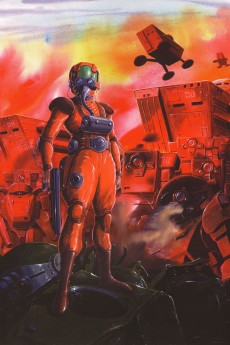 ANIME ActionSoukou Kihei Votoms
ANIME ActionSoukou Kihei Votoms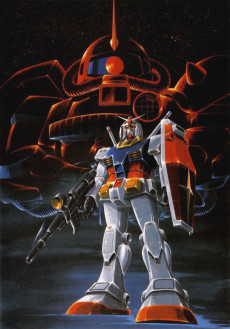 ANIME DramaKidou Senshi Gundam
ANIME DramaKidou Senshi Gundam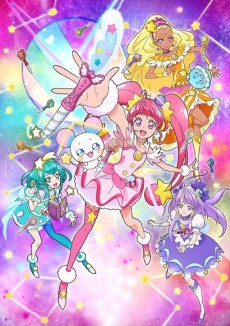 ANIME AdventureStar☆Twinkle Precure
ANIME AdventureStar☆Twinkle Precure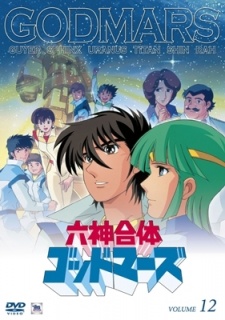 ANIME ActionRokushin Gattai GodMars
ANIME ActionRokushin Gattai GodMars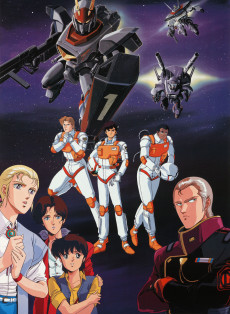 ANIME AdventureKikou Senki Dragonar
ANIME AdventureKikou Senki Dragonar
SCORE
- (3.35/5)
MORE INFO
Ended inJuly 26, 1986
Main Studio Sunrise
Favorited by 56 Users

